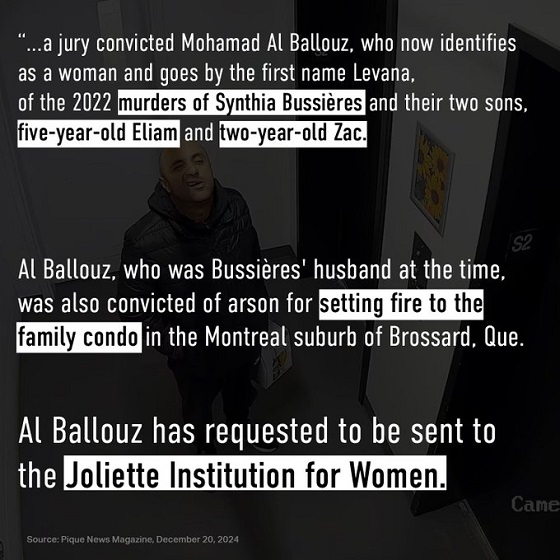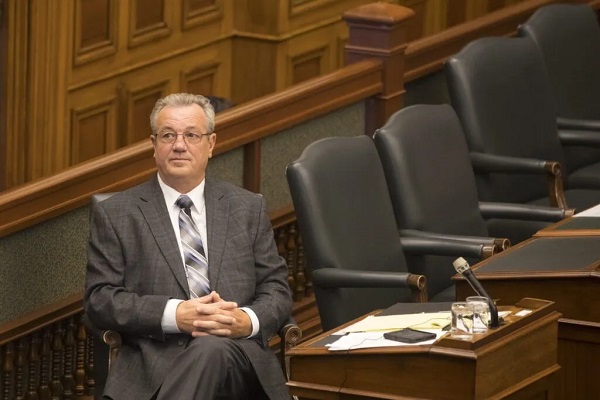National
RCMP to create fake online profiles to track Canadian ‘extremists’: docs

From LifeSiteNews
According to internal documents, the RCMP plans to conduct undercover surveillance on Canadians by creating fake online accounts and tracking what they consider ‘ideological extremists,’ which may include pro-family, pro-life and pro-freedom content.
Canada’s national police force, the Royal Canadian Mounted Police (RCMP), is planning to create fake online accounts to target Canadian “extremists.”
According to an internal strategy document, the RCMP plans to conduct undercover surveillance on Canadians by creating fake online accounts and tracking what they consider “ideological extremists,” which could include pro-family, pro-life and pro-freedom content.
“The RCMP’s lack of a covert online presence was previously highlighted in the OIR (Operational Improvement Review), which recommended that the RCMP develop its own online undercover program to assist with national security criminal investigations,” the RCMP internal document stated.
The document, obtained by an Access to Information request and shared with CBC News, reveals that the Federal Policing National Security is “currently taking steps to address this recommendation through proactive legend-building and backstopping personas, but this work needs to be prioritized and accelerated in order to meet future demand for online undercover activities.”
“Undercover police investigations, among many tools, remain an effective technique to thwart the commission of serious crime and resolve historic offences,” the plan continued. “The focus is on uncovering the truth, verifying facts and determining if someone is involved.”
According to the RCMP, violent extremism is divided into three categories: religiously motivated extremism, politicly motivated extremism, and ideologically motivated extremism.
Ideologically motivated extremis is further categorized into xenophobic violence, gender-driven violence, anti-authority violence, and “other grievance-driven and ideological motivated violence.” The last category includes environmental, animal rights, and “anti-abortion violence.”
While the RCMP’s move to monitor Canadians online is alarming, it is hardly the first time the government-run police force has spied on its citizens.
In 2022, the RCMP acknowledged it uses spyware to turn on or off the camera or microphone of a laptop or phone at will to eavesdrop on one’s conversations without the suspect even knowing it.
The same year, it was disclosed that Canadian Special Forces conducted surveillance flights over the trucker’s Freedom Convoy in February in a spy plane capable of eavesdropping on cell phone calls and tracking small movements, contrary to a military directive banning such flights.
Spying on and tracking Canadians for sharing pro-family and pro-freedom values could prove even more dangerous if Prime Minister Justin Trudeau’s Online Harms bill, which would punish “hate speech” online, is passed.
Bill C-63 was introduced by Justice Minister Arif Virani in the House of Commons in February and was immediately blasted by constitutional experts as troublesome. Put forth under the guise of protecting children from exploitation online, the bill also seeks to expand the scope of “hate speech” prosecutions, and even desires to target such speech retroactively.
Furthermore, the RCMP, like the rest of Canada’s government-run organizations, appears to have been infiltrated by woke activists who label pro-family, pro-freedom, and pro-life causes as “extreme” and “dangerous.”
In 2022, the RCMP issued a 16-page guide suggesting people tell on those who show any signs of “anti-government” or “anti-LGBTQ2” opinions on the internet.
“Some people hold social or political beliefs that may be considered ‘extreme’ or outside mainstream ideologies. Although some ideas alone may be concerning to those around them, it is when a person uses or actively supports violence to achieve ideological, religious or political goals that the police have a role to play,” the guide said.
2025 Federal Election
‘Sadistic’ Canadian murderer claiming to be woman denied transfer to female prison

From LifeSiteNews
The logical decision to house the male murderer with men flies in the face of the Liberal Party’s official stance, which is to incarcerate prisoners according to their ‘self-identified’ gender.
A Canadian man who butchered his family and now claims to be a woman will not be allowed to transfer to a female prison.
On April 8, Correctional Services Canada (CSC) announced that Mohamad Al Ballouz, who brutally murdered his wife and two children, will be sent to a men’s prison, despite claiming to be a woman, according to CTV News.
“When there are overriding health and safety concerns, the request is denied and alternatives are put in place to meet the offender’s gender‑related needs at the institution where they are incarcerated,” the CSC statement reads.
Following an assessment of Al Ballouz request, CSC confirmed that he “will be incarcerated in a men’s institution.”
On December 16, Al Ballouz, a 38-year-old from Quebec, was found guilty second-degree murder of his wife Synthia Bussières, first-degree murder of five-year-old Eliam and two-year-old Zac, and one count of attempted arson.
Crown prosecutor Éric Nadeau revealed that the murder took place in September 2022 when Al Ballouz slaughtered his family at their Brossard apartment. He stabbed his wife 23 times before suffocated his children and trying to set the apartment on fire. He then ingested windshield washer fluid, which is believed to have been a suicide attempt.
During the trial, Quebec Superior Justice Eric Downs described Al Ballouz, as having a “sadistic character” and being “deeply narcissistic.” He was sentenced to life imprisonment with no chance of parole for 25 years.
Throughout the trial, Al Ballouz, a biological male, claimed to be a woman and demanded that he be referred to as “Levana,” a change which was made after he was charged for his crimes. Notably, the Canadian Broadcasting Report’s (CBC’s) report of the case refers to the convicted murder as “she” and uses his fake name.
Following his sentencing, the murderer requested to be sent to the Joliette Institution for Women; however, Downs responded that is a decision for Correctional Service Canada.
Currently under the Liberal Party, the policy is to place prisoners according to their “self-identified” gender, not according to biology. As a result, male rapists and murderers can be sent to prison with females.
However, Al Ballouz’s case caused an uproar on social media as many pointed out that putting the murderer in a women’s prison would pose a danger to female inmates.
Conservative Party leader Pierre Poilievre has condemned the Liberal policy and promised that he would end this practice if elected.
“Surreal: A man who killed his wife and two kids now claims he is a woman to go to a female prison,” he wrote in a December 22 post on X.
“I can’t believe I have to say this: but when I’m PM, there will be no male prisoners in female jails,” Poilievre continued. “Period.”
2025 Federal Election
What Trump Says About Modern U.S. And What Carney Is Hiding About Canada

“Reporters once asked legendary boxer Rocky Graziano why he hugged his opponent after the guy had pounded him senseless for 15 rounds. “He stopped punching me, didn’t he?” That sums up the reaction of Boomer voters hugging Mark Carney after ten years of having Liberals pound them. They can rationalize any amount of suffering.”
The two looming figures in the current “hurry up before they find out who Mark Carney is” election are Carney, the transnational banker/ climate zealot/ not-Trudeau Liberal, and Donald Trump. Yes, Pierre Poilievre is running against Carney, but Carney and the Gerry Butts braintrust are running against the U.S. president.
And not just POTUS 45/47. They’re running against the SNL cartoon figure embraced by Canada’s mainstream media outlets. Depending on the day the Toronto Star/ CBC/ Ottawa Citizen iteration of Trump is “stupid”, “racist”, “sex fiend” and, for this campaign, the boogeyman who will swallow Canada whole. While these scribblers and talking heads themselves are going broke, they imagine Trump as an economic moron collapsing the western economy.
All the clever Conservative ads, all the Carney flubs, all the revelations of election rigging by Chinese operatives— none of it matters to Canada’s Boomers huddled against the blustering winds of Trump. They call it Team Canada but it might just as well be Team Surrender to people who are willing to keep the Liberals’ Gong Show going for another four years.
As they say, you’re welcome to your own opinion, you’re just not welcome to your own facts. And the facts are that Trump and Carney are representative of their separate nations in 2025. Before we address the parachute PM Carney let us suggest that CDNs weaned on Stephen Colbert and John Oliver have little idea why Trump is the most impactful American politician of the century so far.
But don’t take our word for it. Here’s Democratic comedian Dave Chappelle explaining why so many remain loyal to the former Democrat and reality TV star in the face of impeachments, criminal charges and yes, bullets. Chappelle, who lives outside the Hollywood bubble in Ohio, said, “I’m not joking right now, he’s an honest liar. That first (2016) debate, I’ve never seen anything like it. I’ve never seen a white male billionaire screaming at the top of his lungs, ‘This whole system is rigged.’

“And the moderator said, ‘Well Mr. Trump if, in fact, the system is rigged as you suggest, what would be your evidence?’ He said, ‘I know the system is rigged because I use it.’ I said ‘Goddamn’.
“No one ever heard someone say something so true. And then Hillary Clinton tried to punch him on the taxes. She said, ‘This man doesn’t pay his taxes,’ he said, ‘That makes me smart.’ And then he said, ‘If you want me to pay my taxes, then change the tax code. But I know you won’t, because your friends and your donors enjoy the same tax breaks that I do.’…
“No one had ever seen anything like that. No one had ever seen somebody come from inside of that house outside and tell all the commoners we are doing everything that you think we are doing inside of that house. And a legend was born.”
In short, Trump is what we want politicians to be. Aspirational, yes. But willing to act. We can take it. Yes, his truth is wrapped in multiple layers of balderdash and folderol. There is a preening ego. Self serving. Vainglorious. Opportunistic. Bombastic.
But he recognized that no one— GOP included— wanted anything to do with closing borders, ending foreign wars, levelling the trade barriers. So while Canadians whined, he took them on, and for that he’s been given two terms in the White House. You can understand why people wanted him dead last summer. He’s bad for the business he exposed in that debate with Hillary.
So Canadian liberals might sneer and condescend, but Trump’s answering to a legitimate voice in an America that was deceived and abused during Covid. And had a senile man as POTUS being manipulated by unseen characters behind the scenes.
Which begs the question: What in the Canadian character is Mark Carney answering to as he is dropped into the seat formally occupied by Justin Trudeau? The most obvious answer is Trump’s 51st state musings as he seeks to re-order the world’s tariff system. But what about repudiating everything he and his party stood for the past decade? How does that fit into the Carney identity?
While Trump has a resounding mandate to pursue the issues he campaigned on, Carney has a manipulated Liberal leadership contest, no seat and Mike Myers. Plus a media that owes its living to his party’s bribing them.

It would be hard to imagine more own goals than Carney’s record since the Liberals rigged his nomination. The China denials, the offshore tax evasions, the three passports, the renunciation of his entire work history, the re-hiring the worst of Trudeau’s cabinet, the bad body language… yet every gaffe increases his numbers in the purchased polls and the bought media. It will be an amazing story when it’s written.
But it’s not being written that way now. Because Donald Trump has activated Canada’s passion for authority and the expert class. While the rest of the world has awakened to the government’s deliberate manipulation of fear and white-coat reverence during Covid, Canada’s Boomers are still in awe of people like Carney. They still think the vaccines work. That The Science was behind it all.
So prepare for another 15 rounds of being slugged in the head by people who don’t have your goals in mind. Don’t say you we weren’t warned.
Bruce Dowbiggin @dowbboy is the editor of Not The Public Broadcaster A two-time winner of the Gemini Award as Canada’s top television sports broadcaster. His new book Deal With It: The Trades That Stunned The NHL And Changed Hockey is now available on Amazon. Inexact Science: The Six Most Compelling Draft Years In NHL History, his previous book with his son Evan, was voted the seventh-best professional hockey book of all time by bookauthority.org. You can see all his books at brucedowbigginbooks.ca.
-

 Also Interesting2 days ago
Also Interesting2 days agoMortgage Mayhem: How Rising Interest Rates Are Squeezing Alberta Homeowners
-

 Alberta2 days ago
Alberta2 days agoAlberta takes big step towards shorter wait times and higher quality health care
-

 Justice2 days ago
Justice2 days agoCanadian government sued for forcing women to share spaces with ‘transgender’ male prisoners
-

 Business1 day ago
Business1 day agoStocks soar after Trump suspends tariffs
-

 COVID-191 day ago
COVID-191 day agoBiden Admin concealed report on earliest COVID cases from 2019
-

 MAiD2 days ago
MAiD2 days agoDisability rights panel calls out Canada, US states pushing euthanasia on sick patients
-

 COVID-192 days ago
COVID-192 days agoRandy Hillier wins appeal in Charter challenge to Covid lockdowns
-

 Business2 days ago
Business2 days agoTrump raises China tariffs to 125%, announces 90-day pause for countries who’ve reached out to negotiate




